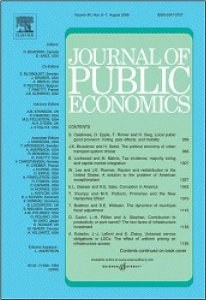

Otto Swank
Key publications

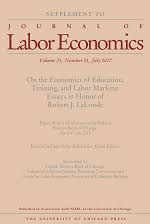


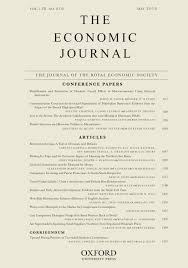
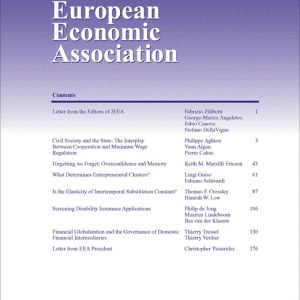
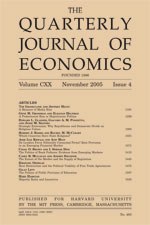
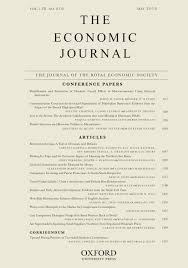
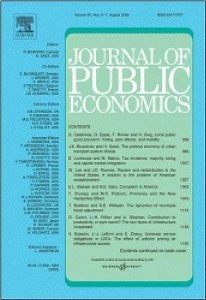
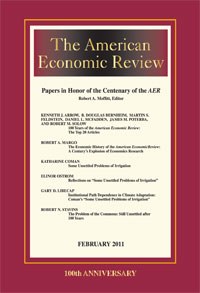
List of publications
Delfgaauw, J. and Swank, O. (2025). The Political Economy of (Lacking) Commitment to Green Policies Journal of Environmental Economics and Management, 130:.
Delfgaauw, J. and Swank, O. (2024). The political climate trap Journal of Environmental Economics and Management, 124:.
Swank, O. and Visser, B. (2023). Committees as active audiences: Reputation concerns and information acquisition Journal of Public Economics, 221:.
Karamychev, \VladimirA.\ and Swank, \OttoH.\ (2022). A social image theory of information acquisition, opinion formation, and voting European Journal of Political Economy, 74:.
Bijkerk, S., \Dominguez Martinez\, S., Kamphorst, J. and Swank, O. (2021). Labor Market Quotas when Promotions are Signals Journal of Labor Economics, 39(2):437--460.
Sharif, Z. and Swank, O. (2019). Do More Powerful Interest Groups Have a Disproportionate Influence on Policy? De Economist, 167:127--143.
Bijkerk, S., Karamychev, V. and Swank, O. (2018). When Words are not Enough Journal of Economic Behavior and Organization, 149:294--314.
Kamphorst, J. and Swank, O. (2018). The role of performance appraisals in motivating employees Journal of Economics and Management Strategy, 27(2):251--269.
Delfgaauw, J. and Swank, O. (2016). Task-specific human capital and organizational inertia Journal of Economics and Management Strategy, 25(3):608--626.
Kamphorst, J. and Swank, O. (2016). Don't Demotivate, Discriminate American Economic Journal: Microeconomics, 8(1):140--165.
Swank, O. and Visser, B. (2015). Learning from others? Decision rights,strategic communication, and reputational concerns American Economic Journal: Microeconomics, 7(4):109--149.
Kamphorst, J. and Swank, O. (2013). When Galatea cares about her reputation: How having faith in your workers reduces their motivation to shine European Economic Review, 60:91--104.
Visser, B., Swank, O. and Crutzen, B. (2013). Confidence Management: on Interpersonal Comparisons in Teams Journal of Economics and Management Strategy, 22(4):744--767.
Visser, B. and Swank, O. (2013). Is Transparency to no Avail? Committee Decision- Making, Pre- meetings, and Credible Deals The Scandinavian Journal of Economics, 115:967--994.
Swank, O. (2010). Why are junior doctors reluctant to consult attending physicians? Journal of Health Economics, 29(2):191--332.
Swank, O. and \Dominguez Martinez\, S. (2009). A Simple Model of Self-Assessment Economic Journal, 119(539):1225--1241.
Swank, J., Swank, O. and Visser, B. (2009). How committees of experts interact with the outside world: Some theory, and evidence from the FOMC Journal of the European Economic Association, 6:478--486.
Swank, O. and Visser, B. (2008). The consequences of endogenizing information for the performance of a sequential decision procedure Journal of Economic Behavior and Organization, 65(3):667--681.
Dominguez-Martinez, S., Swank, O. and Visser, B. (2008). In defense of boards Journal of Economics and Management Strategy, 17(3):667--682.
Swank, O. and Visser, B. (2007). Do Elections Lead to Informed Public Decisions? Public Choice, 129:435--460.
Swank, O. and Visser, B. (2007). Motivating through delegating tasks of giving attention Journal of Law, Economics, and Organization, 23:731--742.
Visser, B. and Swank, O. (2007). On committees of experts Quarterly Journal of Economics, 122(1):337--372.
Wrasai, \.(. and Swank, O. (2007). Policy Makers, Advisers and Reputation Journal of Economic Behavior and Organization, 62:579--590.
\Dominguez Martinez\, S. and Swank, O. (2006). Polarization, Information Collection and Electoral Control Social Choice and Welfare, 26(3):527--545.
Dur, R. and Swank, O. (2005). Producing and Manipulating Information Economic Journal, 115:185--199.
Beniers, \.(. and Swank, O. (2004). On the composition of committees Journal of Law, Economics, and Organization, 20:353--378.
Ossokina, I. and Swank, O. (2004). The optimal degree of polarization European Journal of Political Economy, 20:255--262.
Suurmond, \.(., Swank, O. and Visser, B. (2004). On the bad reputation of reputational concerns Journal of Public Economics, 88:2817--2838.
Ossokina, I. and Swank, O. (2003). Polarization, political instability and active learning The Scandinavian Journal of Economics, 105(1):1--14.
Swank, O. (2002). Budgetary devices for spending prone ministers and bureaucrats Public Choice, 111:237--257.
Swank, O. (2001). A comment on sequential elections and overlapping terms: voting for US Senate Journal of Economic Behavior and Organization, 46(4):437--440.
Swank, O. and Dur, R. (2001). Why do policy makers give (permanent) power to policy advisers? Economics and Politics, 13(1):73--93.
Swank, O. (2000). Policy advice, secrecy, and reputational concerns European Journal of Political Economy, 16(2):257--271.
Swank, O. (2000). Why do workers spend so much time on inferior tasks Journal of Institutional and Theoretical Economics, 156(3):501--512.
Swank, O. and Hillman, A. (2000). Why political culture should be in the lexicon of economics European Journal of Political Economy, 16(1):1--5.
Letterie, W., Swank, O. and \van Dalen\, H. (2000). When policy advisors cannot reach a consensus Social Choice and Welfare, 17(3):439--461.
Swank, O., Letterie, W. and \van Dalen\, H. (1999). A theory of policy advice The Journal of Law and Economics, 10:85--103.
Swank, O., Peletier, B. and Dur, R. (1999). Voting on the budget deficit: comment American Economic Review, (89):1377--1381.
Swank, O. and Eisinga, R. (1999). Economic outcomes and voting behaviour in a multi-party system: an application to the Netherlands Public Choice, 101:195--213.
Dur, R. and Swank, O. (1998). The role of governmental agreements in breaking political deadlock European Journal of Political Economy, 14(3):561--572.
Letterie, W. and Swank, O. (1998). Economic policy, model uncertainty and elections Economics and Politics, 10(1):85--103.
Swank, O. (1998). Budgetary decisions De Economist, 145:127--129.
Swank, O. (1998). Partisan policies, macroeconomic performance an political support Journal of Macroeconomics, 20(2):367--386.
Swank, O. (1998). Towards an economic theory of ideology European Journal of Political Economy, 14:223--240.
Swank, O. and Letterie, W. (1997). Learning and signalling by advisor selection Public Choice, 92:353--367.
Swank, O. (1997). Some evidence on policy makers' motives, macroeconomic performance and output-inflation trade-offs Applied Economics, 29:251--258.
Lippi, \.(. and Swank, O. (1996). Do policymakers' distributional desires lead to an inflationary bias? Journal of Policy Modeling, 18(1):109--116.
Swank, O. (1996). Partisan politics, divided government and the economy De Economist, 144(3):510--512.
\van Dalen\, H. and Swank, O. (1996). Government spending cycles: ideological or opportunistic? Public Choice, 89:183--200.
Swank, O. (1995). Rational voters in a partisanship model Social Choice and Welfare, 12:13--27.
Siebrand, J. and Swank, O. (1994). Partisan profiles in presidential policies Journal of Macroeconomics, 16:553--559.
Swank, O. (1994). Better monetary control may increase the inflationary bias of policy The Scandinavian Journal of Economics, 96:125--131.
Swank, O. (1994). Partisan views on the economy Public Choice, 81:137--150.
Swank, O. and Swank, J. (1993). In search of the motives behind US fiscal macroeconomic policy Applied Economics, 25:1013--1022.